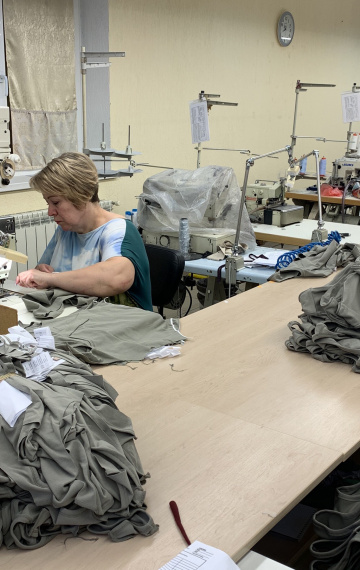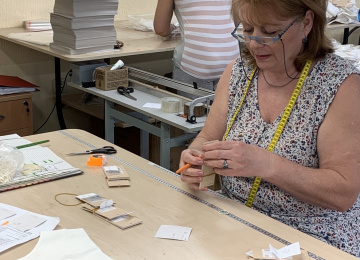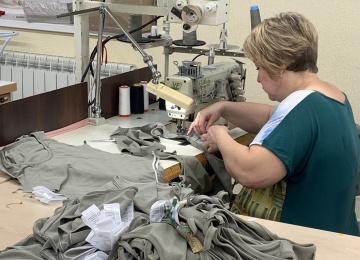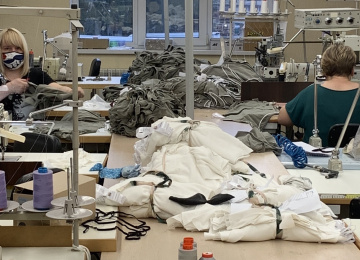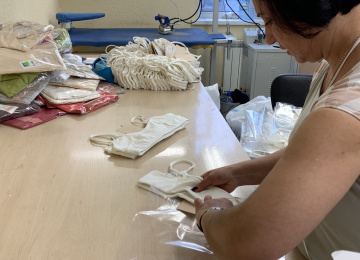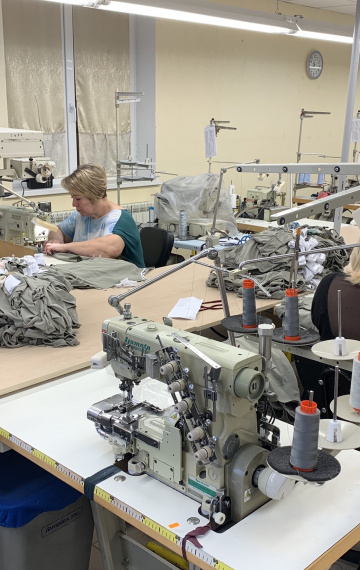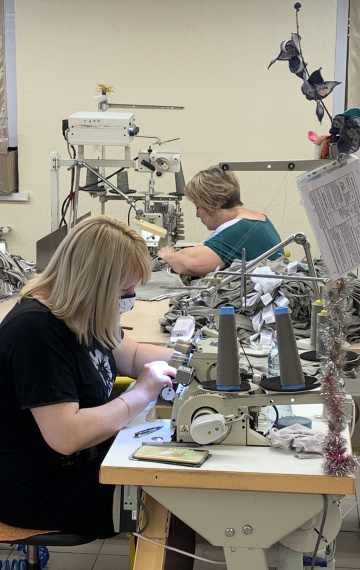
Back in 2018, Belarusachka was one of 22 garment-making SMEs in Belarus that took part in the Eastern Partnership: Ready to Trade project, an EU4Business Initiative supported by the EU, the Centre for the Promotion of Imports (CBI) and International Trade Center (ITC).
“We were about to close the selection draw for the project, when Belarusachka’s ambitious founders reached out to us,” recalls Ready to Trade Project Manager Andrey Fedorov. “Their company was trying to enter the EU market. We carried out an audit to assess the brand’s production capabilities and export potential, and so began to work with them.”
“Belarusachka,” meaning Belarusian woman, is a family business that is more than 15 years old. It started small when a married couple bought several sewing machines and began to make comfortable, affordable casual wear. Fifteen years later, almost the entire clothing line is based on unique designs and is sold in stores in Belarus, Russia, Ukraine, and other CIS countries. The enterprise is located in on the outskirts of Minsk and employs over 100 local women.
Initially, the company focused mainly on Belarusian and Russian customers. Now, it has taken the next step—to enter new markets, including the EU.
Belarusachka becomes Mirolina
The company’s owners did not possess the specific professional knowledge to expand their business, but ITC and CBI experts came to their rescue. Under the EU4Business "Ready to Trade" project, Belarusian specialists received training on wholesale and retail sales management, franchising and merchandising, production development, and e-commerce. Finally, the decision was made to establish a new brand focused on the EU market. That’s how Mirolina was born. It differs from Belarusachka mainly in its designs, which are more in line with the preferences of European consumers.
“We had grown attached to the name, but for Europeans, ‘Belarusachka’ is hard to pronounce and it’s even harder to understand what it stands for,” says Fedorov. “Together with project experts, the company developed a marketing plan and launched a new website in English, putting together content and visualizations. Several times a month, project experts monitor changes and call the company to discuss business issues.”
Along with organizing seminars and workshops for Belarusachka, the experts helped introduce online sales for Mirolina. It was one of five companies that qualified to work with an Amazon e-commerce expert hired by the project.
“This was a very important step, as all sales of the new brand had to go online through Amazon,” notes Fedorov. “The process is quite complicated: we had to open accounts and register a trademark, which took about six months. Now all Mirolina products are sold through Amazon. This is a unique experience for Belarus.”
Warehouses and stores in Poland and the Baltics coming
Under the EU4Business initiative, both Belarusian brands have introduced high EU standards of corporate social responsibility, environmental and safety standards into their production systems. This, in turn, has boosted brand credibility among potential partners and customers alike. In 2019, Belarusachka participated in major European trade fairs like Interfiliere, Who is next? and Première Vision. This year, they attended the online Salon International de la Lingerie trade exhibition.
“By visiting exhibitions in the EU, company representatives had the opportunity to learn how to present their products,” says Fedorov. “They made important business connections and signed contracts with EU partners.
Today, Mirolina is selling clothing in Poland, Germany, France and other EU countries. Soon they plan to open a few warehouses for online sales, and stores in Poland and the Baltic countries.
